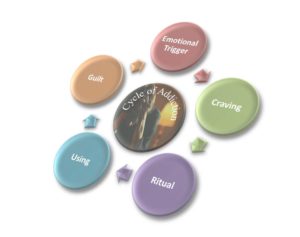DJ Spigener, LMHC
Navigating family, work, social, and romantic connections can be a challenge for all of us at times. Relationships can be likened to a complicated “dance” in which each party is asked to not only maintain their own steps, but also to predict and properly respond to the steps of the other person! This is a tall order for many, especially if we were not provided with models of healthy adult relationships growing up or have had negative experiences that have skewed our thoughts and beliefs about what a “healthy relationship” is. Fortunately, we have a very powerful and effective tool at our disposal which can help us to foster understanding in our relationships and, in essence, “teach others how to treat us.” That tool is learning to set and maintain healthy interpersonal boundaries.
If you are struggling to feel heard, respected, and validated in your own relationships, or find yourself in constant conflict with the people around you, here are a few early indicators that you may be struggling with an interpersonal boundary problem:
- You often feel that no one cares about your thoughts, needs, wants, and emotions.
- You often find yourself in conflict with those around you, whether this conflict be verbal or physical.
- You often choose to hold your pain or discomfort with another person inside, rather than expressing them and confronting the source of the hurt or discomfort.
- You often feel taken advantage of, or like you give more in relationships than you receive.
- You often doubt your own thoughts or feelings or have been told by others in your life that your own thoughts or feelings are not valid.
- You struggle to make your own decisions or choices that directly affect your life.
- You often give in to others’ wants or opinions and go along with their decisions, even when you do not agree with them.
These are just a few of the many signs that a person may benefit from education and therapeutic work around setting and maintaining healthy interpersonal boundaries. If you are interested in learning more or have an interest in group offerings that focus on this topic, please contact our office at (321) 332-6984.







